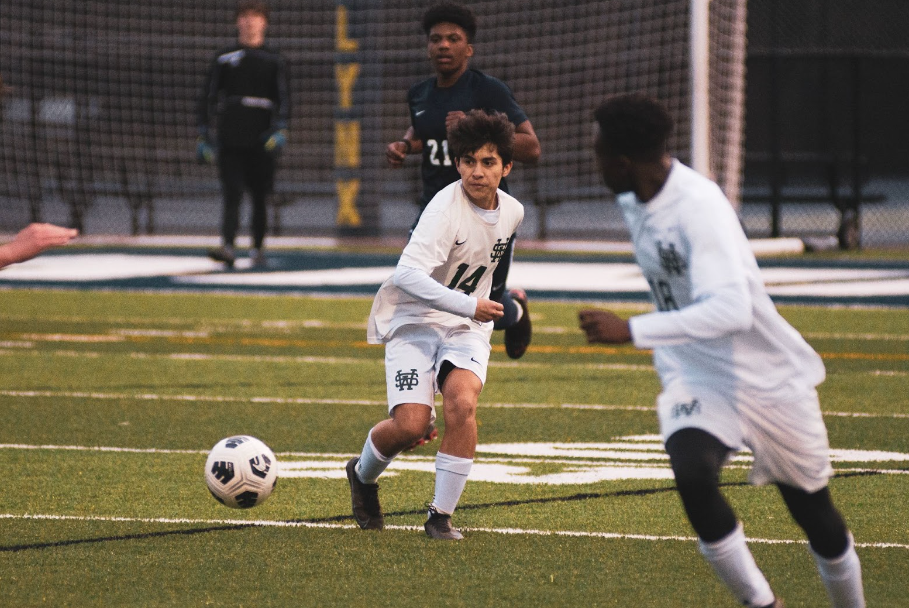For players on both club and school teams, soccer has not simply been an extracurricular, but rather a lifestyle since childhood. Club players work with their teammates and coaches for years on end, practicing and competing almost every day of the week. As players take up positions on their school teams, the sport only becomes a more central piece of their life.
Organizations centered around sports can offer some off-season opportunities to athletes to practice their sport. Since athletes dedicate a lot of time towards their sport outside their school team, club teams are often taken as seriously as school teams. Most athletes begin playing at the club level and compete in tournaments, which are often as competitive as school tournaments.
“Club [soccer] is more important,” Silas Bussart (10) said. “It’s more out there. You’re traveling all the time, you’re getting noticed more, so definitely club [is more important].”
Players usually stay with their club teams from their childhood, creating bonds with their teammates who may go to different schools and play on their school teams. At the White Station-Houston game, junior-varsity captain and varsity player Bussart played against his own club teammates.
“It’s kind of a little bit of pressure, because you want to perform well, especially around your teammates, but it’s also more fun because you know how they play, you know what they’re going to do, and you get to conversate with them,” Bussart said.
Playing both club and school soccer allows players to keep their skills intact year round because when the club season ends, the school season starts. Being on two teams gives players the opportunity to hear feedback and learn different techniques from two separate coaching staffs.
“Having two coaches really helps,” Kingston Brooks (10) said. “It’s good to get advice from two people, especially since [club coaches] are more professional usually.”
As players transition into high school, the school workload gets more intense, especially for academically ambitious students. Many, including Luke Meng (10), are left having to make a choice between staying on their club or school soccer team because of the heavy commitment they demand. Meng played club soccer for seven years while simultaneously playing school soccer for four years, but this year he chose to leave his club team.
“I still wanted to keep up the sport, but keeping up both at the same time would be too much work, and with club [soccer] I would have to travel almost every weekend,” Meng said. “I just didn’t have time for it.”
Many players continue to play on both club and school teams despite time management difficulties. Club soccer requires the time of its players every day for up to three hours after school. But in return, many players are offered the chance to travel and play games out of the city,
“We travel to Murfreesboro a lot, sometimes it’s just to Jackson or Arkansas, it depends on the team,” Bussart said.
Many club and school soccer players enjoy the benefits of playing on both teams. School soccer provides a more relaxed environment in contrast to the highly competitive environment of club soccer leagues.
“You’re training every day, if you’re not training, you’re at a game … and it just helps you improve overall,” Bussart said. “You’re traveling to train. It’s also fun too. You stay in a consistent spot with [the] club [team] so you’re always on that team unless you switch.”
Playing on a club team for several years is also an outlet for life-long friendships.
“ I’ve been on this team for two years and some of them are my best friends,” Bussart said.



































